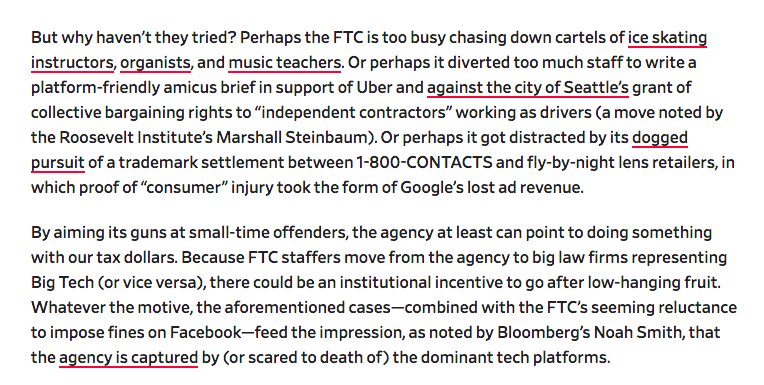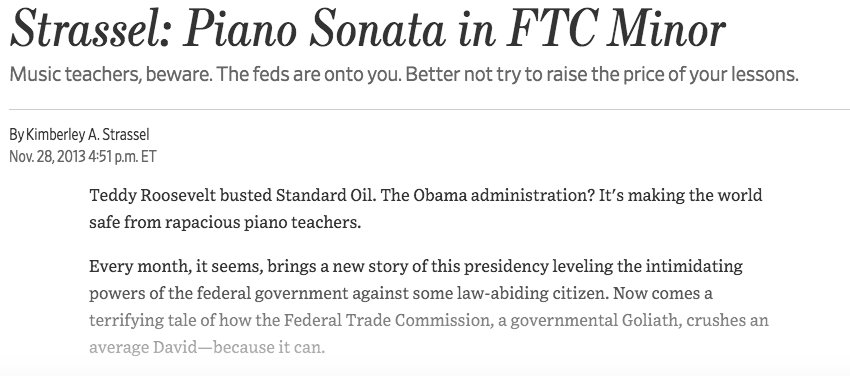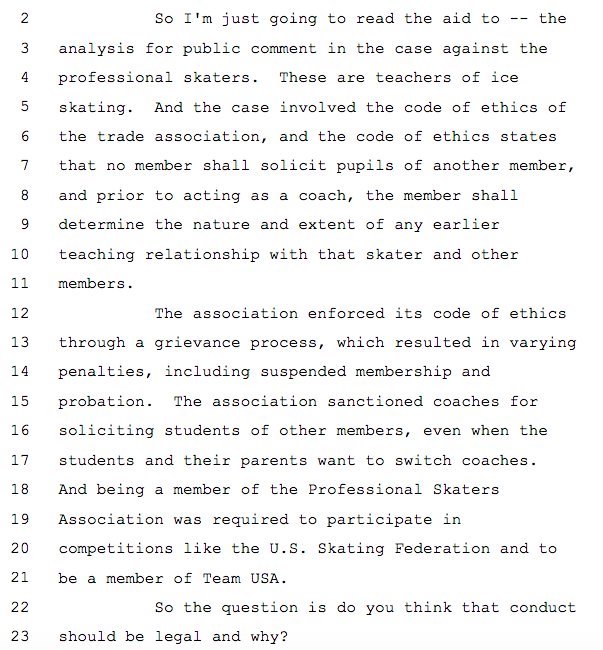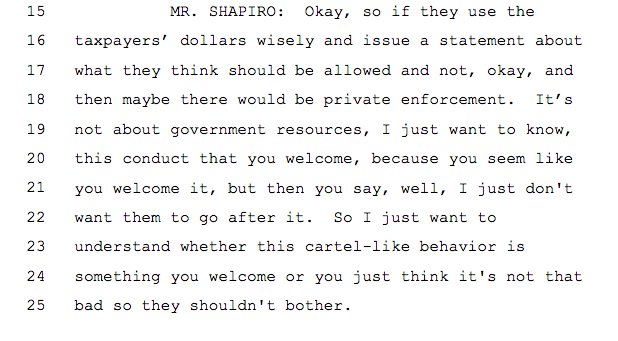Here's a really unpopular opinion about the FTC skaters, organist, & piano teacher cases. They are heavily criticized as a symbol of the agency being out of touch or misallocating resources.
But these are good cases. The FTC was right to bring them. (1/x)
To be clear --- my claim is that they are socially valuable cases and belong in the AT agency portfolio; it is not that they should be the only cases. We will get to the agency resource arguments shortly. (2/x)


Naked restrictions on competition between rivals are bad. Antitrust agencies should use the tools at their disposal to stop them. Deterrence is an important part of that. (24/x)














